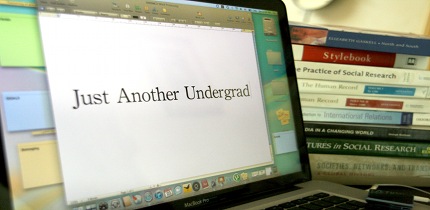By Fatma Bujsaim (@FatmaBujsaim)

Remember the time when we were kids and used to cry over everything? We may not remember, after all, we were too young. But what most of us remember is that at some point in our lives we would look at the crying 6 year-old child and ask ourselves “why does he not just say what he wants?” or “why cannot he convince his parent to give him what he wants?” instead of throwing tantrums and crying.
We notice how children cry/scream when they want something, and to many, that is very disturbing. Parents, especially mothers, often times do not give the children what they want when they see this kind of behavior.
As we grow and get into our teens, we get disturbed ourselves by children’s behavior; and so we try to behave otherwise. We start stating what we want and actually request it. The answer would obviously be a ‘yes’ or ‘no’, and when the answer is the latter, we throw a tantrum and declare war at our parents. We do not care what their reasons are; we want what we want and when we want it and we do not bother understanding the reasons. We ask them to treat us like grown-ups and that we are not kids anymore, but we fail to listen to their reasons, which is not mature at all.
At some point, in university, we hear the word ‘dialogue’. Many might think the word is overused or overrated, and even though it is, it is not used properly. A dialogue is a discussion or a conversation between two people (or more) that revolves around a certain subject, topic, or a problem. People may use dialogue to convey a message through a discussion or a debate.
The art of dialogue is very simple, we state what we want with all the ‘why’, ‘when’, ‘who’, and ‘how’ questions. Again the answer might either be a ‘yes’ or ‘no’, and if by any chance it was a ‘no’, we do not resort to throwing tantrums; as that will only show people that we are in fact children as opposed to young adults.
When the other sides’ answer is negative, we must ask ‘why’ without sounding judgmental but rather with curiousness to understand the other person’s view. When we do so, we would be able to give our counter argument and possibly gain what we want.
We do not seem to understand or notice the power of dialogue until we watch a young child, probably five or six years old, scream and cry. We would start to think: if only the child would calm down and if only his mother would listen, if only both parties took things in a calmer manner, they would reach to an agreeable conclusion. And we do not need to be specialists in communication or experts on child dialogue to come to that understanding; it just comes by default, as human beings we try to avoid doing what we see in front of us and is disturbing us.
So if you find yourself in a situation where you are about to blow up in anger or the other side will, try to calm down. Take a deep breath, and ask the other person for his/her views and discuss the matter. It is all about dialogue.
This, my friends, is what I found out while I’m on campus; I wonder if that’s going to change after graduation.
Here We Start – Just Another Undergrad – Living Through The Eyes of Art
Microscopic Me – Society of Tomorrow – To The Point – Spotlight


